Get Lawn Dethatching Services in Atlanta, GA
Local contractors in Atlanta, GA, can help property owners remove built-up thatch, improve lawn health, and prepare yards for seasonal growth or maintenance.
Lawn dethatching services are an important step in maintaining a healthy and vibrant yard, especially for property owners in Atlanta, GA. Over time, thatch-a layer of dead grass, roots, and debris-can build up, preventing water, nutrients, and air from reaching the soil. This can lead to a weaker lawn that is more susceptible to disease and drought stress. Local contractors who specialize in dethatching can assess your yard’s specific needs and recommend the best approach to improve its overall health and appearance.
Property owners in Atlanta may explore dethatching services to enhance curb appeal, promote lush growth, and address issues caused by seasonal changes or heavy foot traffic. Comparing options from experienced service providers allows for informed planning and selecting the right professionals to handle the work efficiently. Keep reading to learn more about how local contractors can help restore your lawn’s vitality and ensure it remains a beautiful part of your property.
- Residential lawns - homeowners in neighborhoods like Buckhead or Decatur may need dethatching to improve grass health.
- Commercial properties - business owners with large turf areas in shopping districts might seek professional dethatching services.
- Overgrown or thick thatch layers - properties experiencing poor drainage or uneven growth often require dethatching to restore lawn vitality.
- Seasonal lawn care - seasonal maintenance in Atlanta's climate can include dethatching to prepare grass for optimal growth.
- Post-storm or heavy rain damage - areas affected by excessive moisture may benefit from dethatching to promote proper air and water flow.
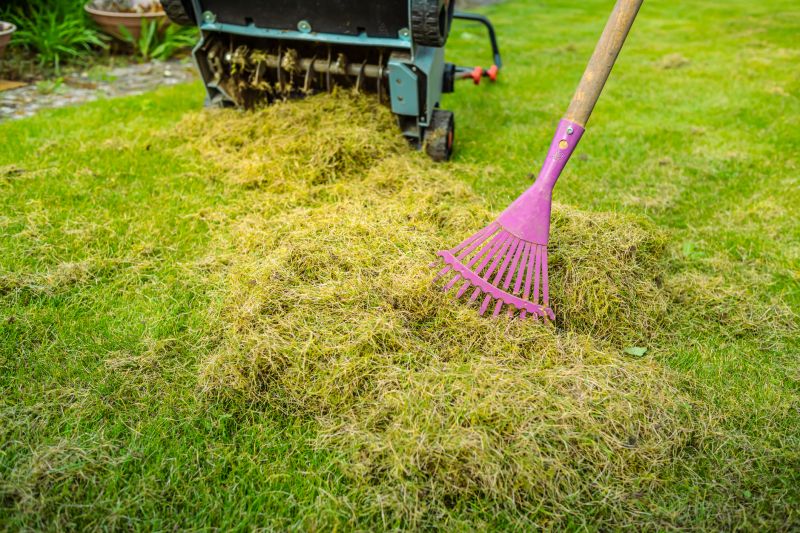
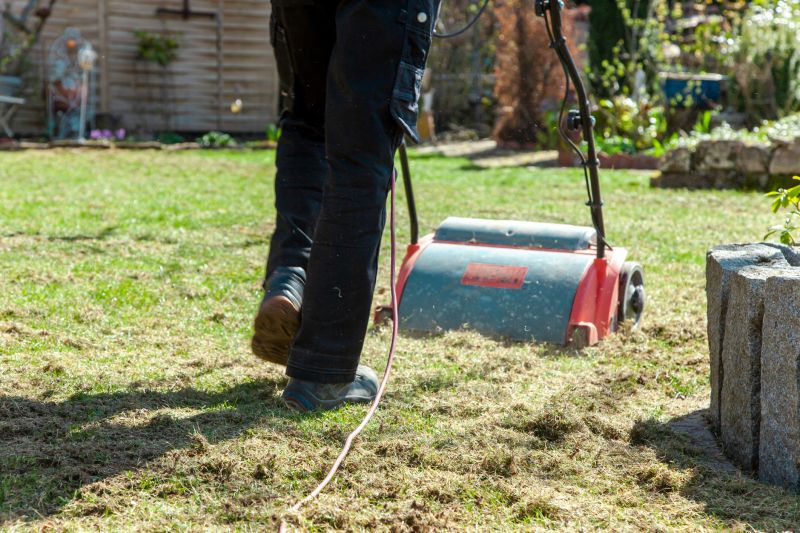
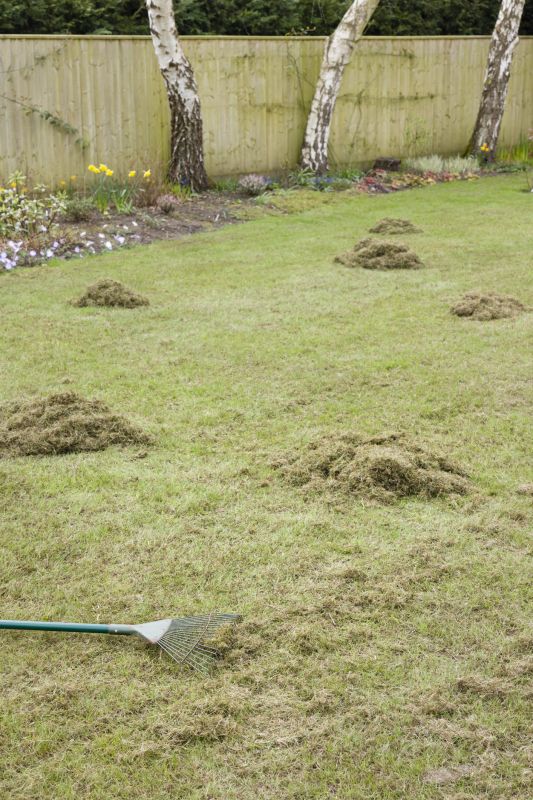
Lawn dethatching is a service that involves removing a layer of thatch, which is a buildup of dead grass, roots, and other organic matter that accumulates between the soil and the green grass. Over time, this layer can become thick and dense, preventing water, nutrients, and air from reaching the grass roots effectively. Dethatching typically involves using specialized tools or machines to carefully lift and remove this layer, helping to restore the health and appearance of the lawn. This process is often recommended for lawns that appear patchy, have a spongy feel when walked on, or show signs of poor drainage and uneven growth.
Addressing thatch buildup through dethatching can solve several common lawn problems. When thatch becomes too thick, it can lead to increased susceptibility to pests and diseases, as the barrier makes it harder for the grass to recover from stress. It can also cause water runoff and pooling, leading to uneven watering and potential erosion. Additionally, a thick thatch layer can prevent fertilizer and other nutrients from penetrating the soil, resulting in a dull, less vibrant lawn. Dethatching helps to improve overall lawn health by allowing water, air, and nutrients to reach the roots more effectively, resulting in a greener, more resilient yard.
This service is often used on residential properties, especially those with larger lawns or areas that see frequent foot traffic. Homes with established lawns that have been in place for several years are common candidates, as thatch tends to build up gradually over time. Properties with dense, lush grass like Bermuda, St. Augustine, or Zoysia often benefit from dethatching to maintain their appearance and vigor. Commercial properties, parks, and sports fields may also require dethatching to keep their turf in top condition for frequent use. Homeowners who notice a spongy feel, poor drainage, or an overall decline in lawn quality are likely to find dethatching services helpful in restoring their yard’s health.
Many property owners in Atlanta, GA, and nearby areas turn to local contractors for lawn dethatching services when their lawns show signs of thatch buildup. Homeowners with mature lawns or those experiencing patchiness, thinning grass, or drainage issues often seek professional help to improve their yard’s condition. Dethatching is a practical solution for maintaining a healthy, attractive lawn, especially in regions where soil and grass types can lead to thatch accumulation. By connecting with experienced service providers, property owners can ensure their lawns receive the appropriate treatment to promote lush, vibrant grass and a more appealing outdoor space.
The overview below groups typical Lawn Dethatching Services projects into broad ranges so you can see how smaller, mid-sized, and larger jobs often compare in Atlanta, GA.
In many markets, a large share of routine jobs stays in the lower and middle ranges, while only a smaller percentage of projects moves into the highest bands when the work is more complex or site conditions are harder than average.
Smaller Repairs - For routine dethatching jobs on small lawns, local contractors typically charge between $250 and $600. Many projects fall within this range, especially for lawns under half an acre. Less extensive work usually costs less, while more involved repairs can push beyond this band.
Medium-Sized Projects - Lawn dethatching on larger yards or with moderate complexity generally costs between $600 and $1,200. These projects are common for homeowners with medium-sized lawns needing thorough dethatching. Larger or more challenging jobs may reach up to $2,000.
Full Lawn Dethatching - Complete dethatching of an entire lawn on properties over an acre can range from $1,200 to $3,500. Many local service providers handle projects in this band, though costs increase with lawn size and specific site conditions. Larger, more complex projects can exceed this range.
Full Replacement or Major Renovation - In cases where lawn renovation or complete dethatching and reseeding are needed, costs can reach $3,500 or more. Such extensive work is less common and often involves detailed site assessments, with prices varying based on scope and lawn size.
Actual totals will depend on details like access to the work area, the scope of the project, and the materials selected, so use these as general starting points rather than exact figures.
Soil aeration projects - local contractors often perform soil aeration to improve lawn health, requiring similar equipment and planning as dethatching services.
Lawn overseeding projects - overseeding involves preparing the soil and spreading seed, which shares skills in lawn assessment and ground preparation with dethatching.
Grass patching and repair - repairing damaged or patchy areas of a lawn involves surface preparation and turf management akin to dethatching work.
Landscape grading and leveling - these projects require soil manipulation and ground preparation skills similar to those used in dethatching services.
Garden bed renovation - transforming garden beds involves soil clearing and preparation, paralleling the ground work involved in lawn dethatching.
Mulching and topdressing services - applying mulch or topdressing requires surface assessment and soil management skills comparable to dethatching projects.
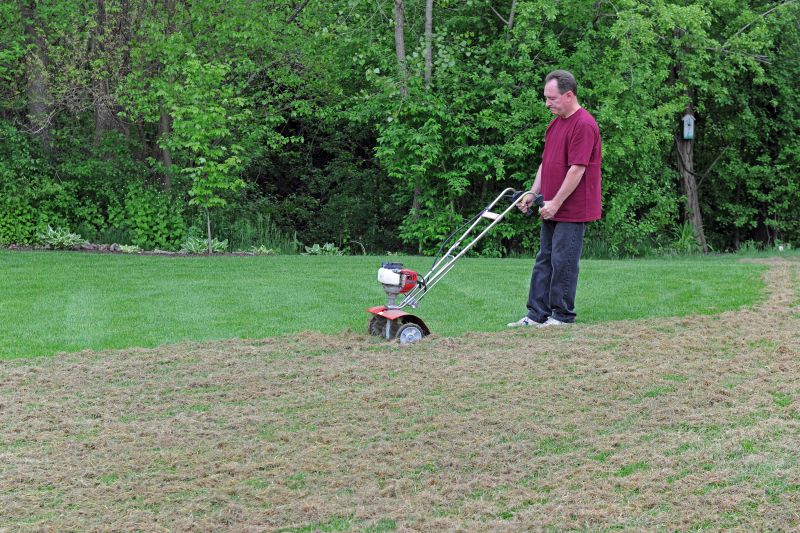
When comparing service providers for lawn dethatching, it’s important to consider their experience with similar projects in the Atlanta area or nearby communities. A contractor who has handled numerous dethatching jobs can often demonstrate familiarity with different lawn types and soil conditions, which can influence the quality of work. Looking into their background and the types of properties they’ve worked on can help ensure they have the practical knowledge needed to deliver effective results. This focus on experience can provide confidence that the contractor understands the nuances of dethatching and can adapt their approach to meet specific lawn needs.
Clear, written expectations are essential when evaluating local contractors for lawn dethatching services. A reputable service provider should be able to outline what the job entails, including the scope of work, the methods they plan to use, and any preparations or follow-up needed. Having these details documented helps prevent misunderstandings and ensures everyone is aligned on what will be done. It’s also beneficial to inquire about the contractor’s approach to cleanup and lawn care afterward, so the homeowner knows what to expect once the project is complete.
Reputable references and strong communication are key indicators of a reliable local contractor. Asking for references from previous clients can provide insights into the contractor’s professionalism, reliability, and quality of work. Additionally, good communication-such as prompt responses to questions and willingness to discuss project details-can make the process smoother and more transparent. It’s worth noting that this site serves as a resource to introduce homeowners to local service providers who can handle the work, rather than performing the work itself. Connecting with experienced, clear, and communicative contractors can help ensure the dethatching project is managed efficiently and effectively.
Property owners in Atlanta, GA use Lawn Dethatching Services services for practical projects around their homes and businesses. This guide focuses on everyday jobs and straightforward project options.
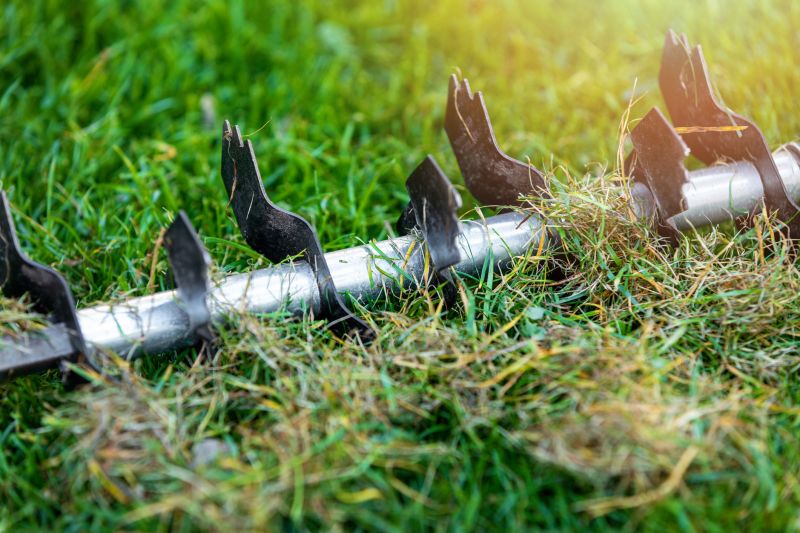
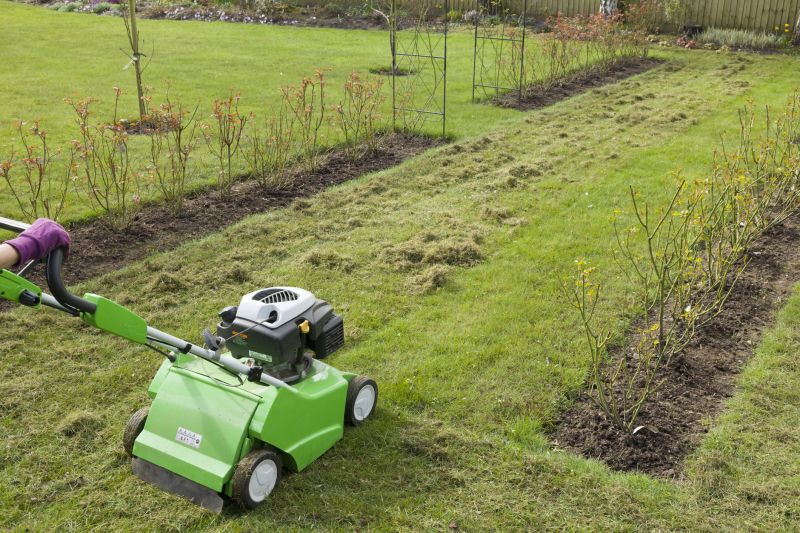
Lawn dethatching services are often sought after by property owners in Atlanta, GA, who notice their grass struggling to stay healthy. Over time, thatch-a layer of dead grass, roots, and debris-can build up between the soil and the green growth, preventing water, nutrients, and air from reaching the roots effectively. This buildup can lead to patchy, thin lawns that are more susceptible to weeds and disease. Local contractors can assess whether dethatching is needed and help restore the lawn’s vitality, making it easier for homeowners to maintain a lush, attractive yard.
Additionally, property owners may consider dethatching when preparing their lawns for seasonal changes or new landscaping projects. In Atlanta’s climate, heavy foot traffic or improper mowing can accelerate thatch accumulation, impacting the overall appearance and health of the yard. Service providers experienced in lawn care can provide the necessary equipment and expertise to remove excess thatch, promoting better grass growth and improving the overall look of residential and commercial properties alike.
What is lawn dethatching? Lawn dethatching involves removing the layer of dead grass and roots that can build up between the soil and healthy grass, helping improve lawn health and appearance.
Why should I consider dethatching my lawn? Dethatching can enhance nutrient absorption, improve water penetration, and promote thicker, healthier grass growth by reducing excess thatch buildup.
How do local contractors perform lawn dethatching? Professionals typically use specialized dethatching equipment or rakes to carefully remove thatch without damaging the underlying grass or soil.
Is lawn dethatching suitable for all grass types? Dethatching is generally beneficial for most grass types, especially those prone to thatch buildup, but a local service provider can advise based on specific lawn conditions.
What should I do before scheduling dethatching services? It’s recommended to keep the lawn well-watered and avoid fertilizing immediately before dethatching to ensure the best results from the process.
Improve lawn health - Lawn dethatching services can help remove built-up thatch, allowing nutrients and water to reach grass roots more effectively.
Prepare for overseeding - Removing excess thatch creates a better environment for grass seed to take root and grow evenly.
Restore lawn appearance - Dethatching can eliminate unsightly patches and promote a lush, uniform look in the yard.
Maintain existing turf - Regular dethatching helps prevent thatch buildup, supporting healthy grass growth over time.

If you are thinking about Lawn Dethatching Services for a property in Atlanta, GA, this guide is meant to help you understand the work, the typical project types, and how different options might fit your plans.
When you are ready, you can use the quote form on this page to share a few details about your project. From there, local pros can review the basics and respond with options that match what you have in mind.
